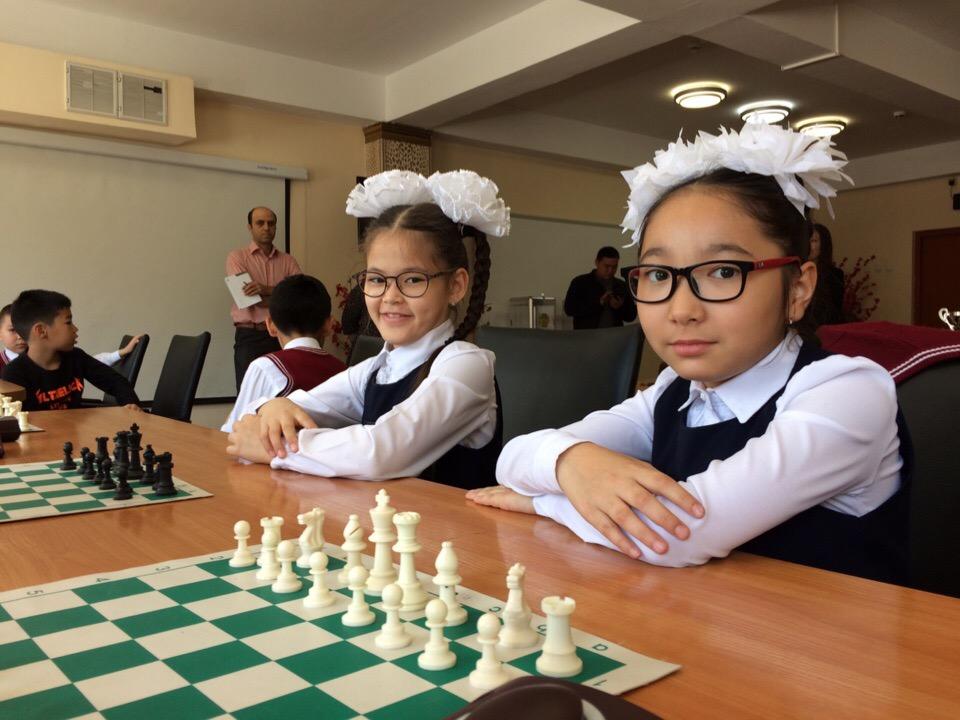
chess at school
From September 1, 2017, a new core curriculum will be introduced in primary schools. From grades 1-3, children will learn programming, and mathematics will be strengthened using the basics of chess. This gives students from thousands of schools the opportunity to learn the secrets of the game of kingship from the very beginning of preschool. And this fits well with the activities of the Polish Chess Association, which, together with provincial chess associations and local authorities and with the support of the Ministry, has been implementing the project “Education through chess at school” since 2013.
The Core Curriculum for General Education is a regulation by the Minister of Education that describes what a student must be able to do in a given subject at a given stage of education. Curricula and textbooks must comply with it, and the teacher must implement the content laid down in the basis. The inclusion of the basics of chess in it does not mean that from the new academic year every elementary school will have compulsory chess classes for all students, but various forms of teaching this game will certainly be initiated and implemented. The new core curriculum will be introduced gradually, after the reform that changes the structure of schools comes into force. In preschool education (grades 1-3), first-graders will be the first to study it, starting from the 2017/2018 academic year.
Paul Morphy
Paul Morphy (1837-1884) - American chess player, widely known as the genius of this discipline and the unofficial world champion during his chess career. The life and work of this legendary athlete is the subject of an article in issue 6/2014 of the Młodego Technika magazine.
Learning to play chess develops children's mathematical abilities, logical thinking, the ability to analyze emerging problems and solve them. A young chess player is more collected, patient and persistent, he copes with failures better than his peers.
Chess builds the imagination, gives self-confidence, teaches respect for the opponent and for oneself. They develop and exercise spatial imagination, proper coordination of movements, learn to distinguish cardinal directions, left-right directions and determine the distance between objects. This is a special geometry lesson that will help the student in mathematics, physics and even technology and geography in a way that the student often does not see.
The conducted scientific research, which determines the impact of teaching chess on various competencies and development of children, shows that chess players learn faster and achieve higher marks than other students, and chess, as a game accessible to every social group, can contribute to social integration. as well as to reduce the level of discrimination, crime and various addictions. American neurologist Prof. Howard Gardner, the creator of the "multiple intelligence theory", substantiates two of them - mathematical-logical and spatial - on chess examples.
Learning through chess at school
Polish Chess Federation – in cooperation with the Ministry of National Education, the Ministry of Sports and Tourism, as well as voivodeship chess associations and local governments – since 2013, has been implementing the project “Education through chess at school”. The project was launched in response to a resolution of the European Parliament, which on March 15, 2012 recommended that EU countries introduce chess into their education systems. This is stated in a statement signed by 415 MEPs. Polish MEPs almost completely supported the introduction of the program into education systems and its support from the European Union.
The main goal of the project "Education through chess at school" is to support mathematical education in preschool education. The idea is to bring education into the schools that join the program. royal games as compulsory classes for grades 1-3, at least one lesson per week for at least two years. Therefore, any elementary school that has at least one chess lesson per week can join the project. The classes end with a descriptive mark in the certificate.
In early childhood education, a good teacher is often more important than a good chess player. With this in mind, a system of methodological and substantive consultations for teachers teaching chess was organized, as well as a training system, curricula and teaching materials. Teaching the game 1 or 2 hours per week is provided by pre-school teachers trained in courses developed by the Polish Chess Federation. Union-led courses include 72 hours of training.
Currently, almost a thousand schools are participating in the program, more than 3,5 thousand students have been trained. teachers. As part of the project, all-Ukrainian methodological conferences for teachers were organized, textbooks for teachers were published - "Scenarios for chess lessons" and "Methodological guide".
Chess lessons are compulsory for all selected grades 1-3. Teachers spend extra hours (art. 42 of the Charter of Teachers), which are mandatory. The Polish Chess Federation takes care of the most talented students.
1. Logo of the project "Education through chess at school"
2. Logo of the project "Vars and Savva play chess"
In Europe, our project is considered the best among other similar projects (1). In Warsaw it is called "Wars and Savva play chess" (2).
“Chess has changed our school,” says Jolanta Katarzyna Dados, a primary school teacher. O. Grzegorz Piramowicz in Kurow. “In addition to developing typical mathematical skills, they also contribute to the intellectual, social and emotional development of children. They teach patience, regularity, diligence, discipline, observance of the rules and respect for the opponent. An additional and often overlooked advantage is also the integration of the children and teachers involved in the project through participation in joint activities.”
The first coordinator of the program was Magdalena Zelinska - teacher, referee and chess instructor, author of the popular series of children's books "Let's Play Chess". Since 2014, this function has been performed by Anna Kharazinska, and Krzysztof Gura has been appointed project director. On June 18 of this year, elections were held for the new leadership of the Polish Chess Federation. Adam Dzvonkowski became president and the new board appointed Piotr Zielinski as project director (3).
3. Piotr Zelinski is the new leader of the Education through Chess in School project.
To all readers of Młedego Technika who are interested in the topic of the use of chess in preschool education, I recommend the website of the project "Education through chess at school" - www.szachywszkole.pl.
Chess Tournament “We play for Maria”
On June 2, 2017, in the Hala Torwar Hall in Warsaw, seven hundred primary school students from grades 1-3 from all over Poland took part in the fourth final tournament of the Education through Chess in School project (4).
4. Participants of the 2nd final tournament of the project "Education through chess at school", Warsaw, 2017 June XNUMX
The goal of the games was to bring together the schools, students, teachers and environments involved in the program, as well as to select the most active participants in the project. The competition was included in the 150th anniversary celebration program this year. Maria Sklodowska-Curie - to introduce children to the figure of our two-time Nobel laureate and show them the relationship between chess and science in a broad sense (5).
5. 150th anniversary of the birth of Marie Curie-Sklodowska.
As a child, Skłodowska-Curie played chess while still living in Warsaw! In the diary of Eva Curie (youngest daughter of Marie Skłodowska-Curie and Peter Curie), the following information can be found:
6. Team winners: 1. Primary school 321 Warsaw, 2. Primary school 2 Tomaszów Lubelski, 3. Primary school 11 Suwalki
The team of elementary school no. 321 in Warsaw won the Warsaw tournament in Torwar. During the competition, her students were under the supervision of teachers: Urszula Pyzik and Zofia Marks. 97 schools took part in the event, and the list of the best in the team standings is presented in tables 1 and 2.
Applause to the organizers, guardians, parents and all participants. The winning school hosts the Student Sports Club “SP 321”, Warsaw Bemowo, where the chess section is led by Zofia Marks, a chess instructor and referee. For several years now, classes with older students have been taught by Jan Adamski, a world champion, chess coach, and a coach with many years of experience. He participated in 22 finals of individual championships in Poland, in 1982 in Zielona Góra he won the title of champion of Poland, represented our country at six chess Olympiads, and in 1980-1990 he was the coach of the national youth team.
7. Bartosz Fischer. Photo: Rafal Civic (2017)
He was among the representatives of the winning team Bartosz Fischer (7), born. On January 10, 2007 in Warsaw, at the age of eight, he won the bronze medal of the Junior World Championship and was awarded the title of FIDE Champion Candidate. In addition to the third place at the U8 World Championship played in Porto Carras, Greece in 2015, he also won three gold medals at the Polish Junior Classic Chess Championship (Poronin 2015 – U8, Jastrzebia Góra 2016 – up to 10 years). , Karpacz 2017 - up to 10 years old) and three gold medals in the individual championships of Poland in rapid chess among juniors (Wroclaw 2014 - up to 8 years old, Katowice 2015 - up to 8 years old, Koszalin 2016 - up to 10 years old).
Let's hope he follows in the footsteps of our best junior - Jan Krzysztof Duda, who currently ranks second in the FIDE World Junior Rankings (ranking 2707 as of July 10, 2017). Or maybe Bartosz Fischer will become a world champion like the famous American chess player Bobby Fischer?
